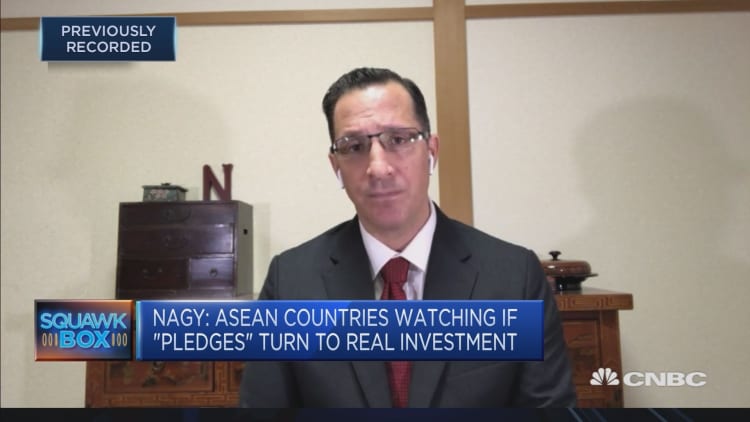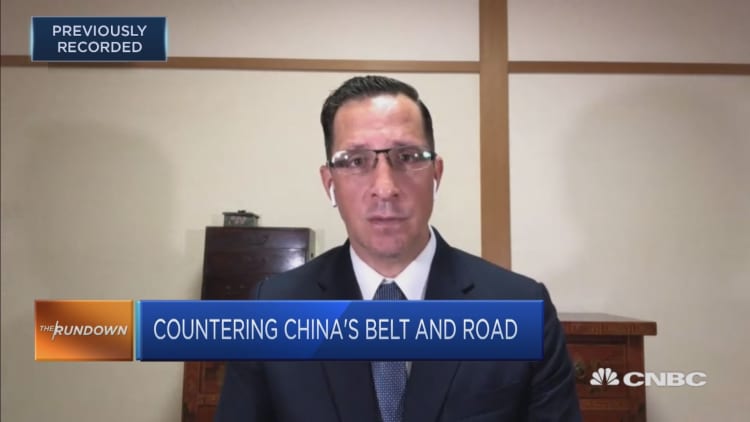
China and the Philippines inked 29 deals — including a joint oil and gas exploration pact — when Chinese President Xi Jinping was in Manila for a state visit which ended Wednesday.
While forging bilateral ties may have been one of the reasons for the two-day visit, another motivation could be an attempt to "woo" the Asian country away from Washington and to consolidate China's influence in the region, Stephen Nagy, senior associate professor at the International Christian University in Tokyo told CNBC.
Xi is very much interested in putting aside the territorial dispute between the Philippines and China.Stephen NagyInternational Christian University in Tokyo
Xi is the first Chinese leader to visit Manila in 13 years. After meeting Philippine President Rodrigo Duterte for talks, Xi described the visit as a "milestone" in the countries' relations.
'Wooing' Manila
"China and President Xi are sincerely interested in bettering relations with all ASEAN (Association of Southeast Asian Nations) neighbors but on this particular visit, I think, it is killing three birds with one stone," said Nagy.
One reason is that Xi wants to move away from their territorial conflict in the South China Sea, he said.
"Second, it's trying to woo Manila away from Washington's political orbit ... And third, I think, strengthening relationships with Manila," Nagy explained.
Beijing claims nearly all of the South China Sea, although other regional players such as Taiwan, Philippines, Brunei, Malaysia and Vietnam also claim parts of it.
"Xi is very much interested in putting aside the territorial dispute between the Philippines and China," Nagy said, adding that the move is "important for China to consolidate its position in the South China Sea."
During the visit, Duterte said there was "a deepening trust and confidence" between the two leaders.
He said they talked also about their increasing trade and investment, and China's involvement in the Duterte's signature $180 billion "Build, Build, Build" infrastructure program.
"With mutual respect, sincerity and adherence to sovereign equality, I will continue to work closely with President Xi," Duterte said.
However, Nagy said the relationship between the U.S. and the Philippines remains strong.
"I do think China has made some gains within the region, but pulling Manila away from Washington is very, very difficult because of cultural issues, values and ... the strong ties that both countries have had for more than 70 years," Nagy said, explaining that there are still joint training exercises between the Philippines and the U.S.
Weakening ASEAN unity
By strengthening relations with Manila, China could be trying to weaken the unity between ASEAN countries, Nagy warned.
"I think (China) strengthening relationships with Manila — it's really an interesting way and cunning way to divide ASEAN, ASEAN's unity," he said.
"If Manila does tend to move into Beijing's political orbit, it means that it may not function and work with other ASEAN countries," Nagy said, explaining that this might make the bloc much less effective.
If ASEAN is rendered less effective, issues that divide the Southeast Asian nations and China — whether security, economic or political — may become much bigger, he explained.
Regional players may not be able to push for their national interests due to their asymmetric power equation with China, Nagy added.

— Reuters contributed to this report

